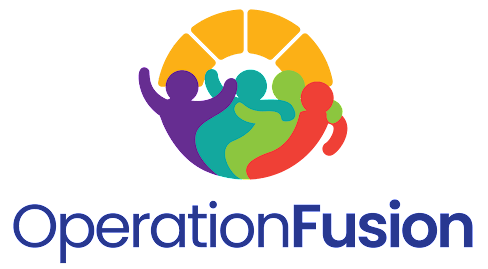Culture, Identity, and Health: Lessons from Refugee Youth
In this reflection on working with refugee youth through Operation Fusion, I explore how culture and identity are deeply tied to health—especially for children navigating displacement and resettlement. Drawing from weekly sessions with sixth-grade students from Latin America, the Middle East, and beyond, the post highlights how affirming cultural roots strengthens emotional resilience, builds trust, and shapes how young people understand and engage with their well-being. The piece calls for a broader view of cultural competency in health, positioning identity not as peripheral, but as essential to healing and long-term care.
Sanjay Balasubramanian
9/11/20242 min read
When children are displaced by conflict, persecution, or instability, the disruption goes far beyond geography. Along with their belongings, they carry stories, traditions, and identities, many of which are at risk of being lost in the process of resettlement. I joined Operation Fusion, an organization dedicated to supporting young refugees as they navigate these challenges. Our focus wasn’t just on education; it was on helping these young individuals recognize that their culture and identity are not separate from their health, but central to it. I was drawn to Operation Fusion because of its mission to empower youth through culturally rooted education, an approach that resonates with my belief that culture is not peripheral to health, but foundational.
Each week, we worked with 5th and 6th grade students at a nearby school for newly arrived immigrants. They were primarily from Latin American countries, but there were a few from the Middle East, Africa, and Southeast Asia. These children often navigated unfamiliar systems where their languages weren’t spoken, their customs weren’t understood, and their perspectives weren’t always validated. Through guided activities and open conversations, we explored how their cultural background shaped their understanding of health: not only physical wellness, but emotional and social well-being as well.
What emerged was a powerful truth: health is not only biological, but also cultural. For many students, wellness was intertwined with family rituals, traditional remedies, spiritual practices, and shared meals. Their sense of safety and belonging was deeply connected to cultural continuity. Yet in a new environment, those ties were often strained or dismissed, leaving them more vulnerable to anxiety, isolation, and identity loss.
Why This Connection Matters
In public health, we often talk about social determinants of health, such as, income, housing, and education. But cultural identity is a determinant, too. It shapes how people express pain, seek care, interpret symptoms, and respond to healing. When someone’s cultural identity is disregarded or invalidated—especially in youth—it creates a disconnect that can delay care, reduce trust in institutions, and harm mental health.
My experience with Operation Fusion taught me that affirming a child’s cultural identity goes beyond building confidence. It plays a critical role in their emotional resilience and overall well-being. Children who feel seen are more likely to advocate for themselves, build resilience, and stay engaged in their health journey. By recognizing and honoring the cultural roots that inform their worldview, we help them bridge the gap between where they come from and where they are now.
Key Takeaways for Health and Education Professionals
Culture shapes definitions of health. What counts as "healthy" varies across cultures. For instance, mental clarity, spiritual alignment, family harmony, and physical strength may all carry different weight.
Identity impacts engagement. When students see their language, food, traditions, and beliefs reflected and respected, they are more likely to participate in programs, follow through with care, and build trust.
Disconnection is a health risk. Cultural erasure can contribute to chronic stress, identity confusion, and mental health challenges. The more we support identity formation, the more we support health.
Belonging is medicine. A strong cultural identity is a protective factor. When students feel connected to their heritage, they build stronger coping skills and a deeper sense of meaning in their lives.
Conclusion: Toward a More Culturally-Rooted Approach to Health
Culture is not a barrier to health, rather a pathway to it. Programs like Operation Fusion remind us that healing and identity are intertwined. If we want to serve refugee and immigrant youth effectively, we must go beyond translation and accommodation. We must integrate cultural identity into how we define, teach, and practice health. By doing so, we don't just treat symptoms...we strengthen the roots that help young people grow.


